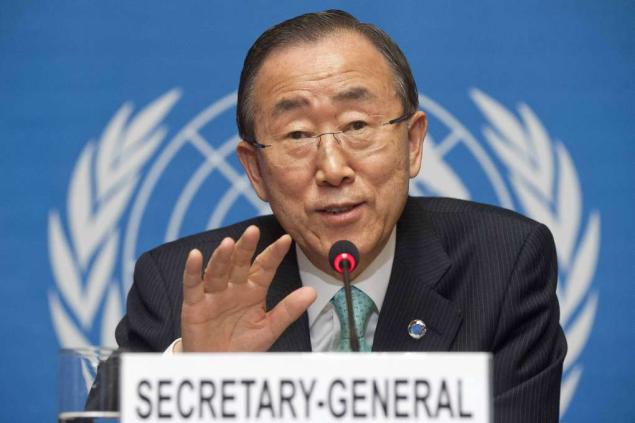**This year’s observance of the International Day for Disaster Reduction is dedicated to the power of traditional, indigenous and local knowledge. **
In March 2015 in Sendai, Japan, I met with the President of Vanuatu, His Excellency Baldwin Lonsdale, at the Third UN World Conference on Disaster Risk Reduction. On that very day, his island nation was devastated by Cyclone Pam, one of the strongest storms ever to strike the Pacific.
The force of the storm led to expectations that there would be great loss of life. Thankfully, this was not the case. One reason was that cyclone shelters built in the traditional style from local materials, saved many lives.
Traditional and indigenous knowledge is the indispensable information base for many societies seeking to live in harmony with nature and adapt to disruptive weather events, a warming globe and rising seas.
In Cameroon, low-tech local knowledge passed down from generation to generation helps farmers to cope with drought by soaking maize and bean seeds before planting. Another time-honoured practice — sprinkling ash over the maize and seeds for a couple of months — helps keep pests away.
Resilience is the sum of many such acts of disaster risk reduction at the local level.
In the Arctic region, we depend greatly on the local knowledge of indigenous peoples to understand the impacts of climate change, because what happens in the Arctic does not stay in the Arctic.
Changes that affect the availability of traditional food sources highlight the challenge that climate change presents for all of humanity, not just people living in the Arctic.
Local knowledge of the impacts of urbanization, population growth, eco-system decline and greenhouse gas emissions is especially important in an era when more and more disasters are climate- and weather-related.
The Sendai Framework for Disaster Risk Reduction recognizes the importance of community-level engagement in disaster risk reduction. It also underlines how traditional knowledge can complement scientific knowledge in disaster risk management. Building resilience to disasters is also a key feature of the newly adopted Sustainable Development Goals, the framework that will guide our efforts to end poverty and promote shared prosperity on a healthy planet by 2030.
On this International Day, let us recognize the efforts of communities, large and small, who put their wisdom to use in reducing disaster risk and sharing their precious “knowledge for life”.

